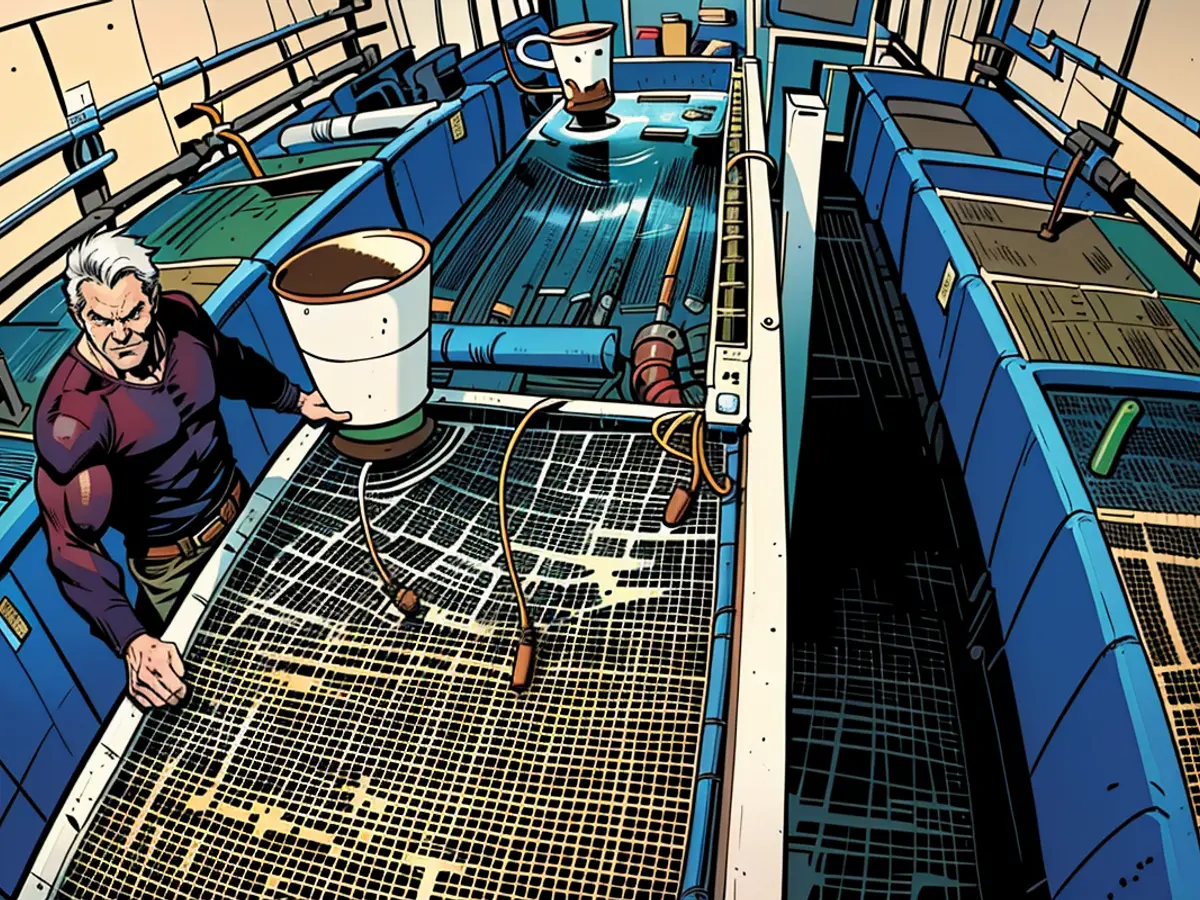Casting Lines: Engaging in the Pursuit of Aquatic Catches - The decrease in fish production in Maldives' aquaculture industry persists.
The production of fish through aquaculture in Mecklenburg-Vorpommern hasn't progressed as much as anticipated by Agriculture Minister Till Backhaus (SPD). Based on information released by the Statistical Office in Schwerin on Tuesday, a total of 453 tons of fish were produced in 13 aquaculture facilities across the state in 2023. This represented a third less than the previous year and a worsening trend. It's also considerably higher than the decline in Germany overall, which was 5.5 percent.
In the previous two years, the decrease in MV had been around 20 percent. Aside from the intricate breeding facilities themselves, increasing energy and feed costs are regarded as obstacles in the industry. The state and federal government attempted to mitigate these challenges by offering special subsidies in the preceding year.
Backhaus had anticipated that fishing companies in the region would find alternative sources of income through aquaculture due to dwindling fish stocks in the Baltic Sea and ensuing fishing limitations. The promotion of sustainable fishing also includes financial assistance from the government. According to the ministry, 5.1 million euros from the EU project flow into MV in the current funding cycle.
Despite these financial motivations, the positive impact appears to be limited. In comparison to other federal states, MV ranks toward the bottom in terms of the production of aquaculture goods, which also include crustaceans, mollusks, and caviar. The leading provider of such goods is the neighboring state of Schleswig-Holstein, which delivered more than 17,000 tons in 2023, predominantly mussels. Bavaria, on the other hand, produced about 5,100 tons, more than ten times the amount generated in Mecklenburg-Vorpommern.
Major focal points of aquaculture in the northeast are the districts of Mecklenburgische Seenplatte and Ludwigslust-Parchim, each hosting four facilities. Common fish varieties include the African catfish, roach, rainbow trout, and Siberian sturgeon.
Read also:
- Despite the challenges in the Mecklenburg-Western Pomerania aquaculture industry, Minister Till Backhaus and the German government have been active in offering subsidies to mitigate increasing energy and feed costs.
- In contrast to Mecklenburg-Western Pomerania, Schleswig-Holstein, a neighboring state, is a leading provider of aquaculture goods in Germany, with over 17,000 tons produced in 2023, mainly mussels.
- Aquaculture in Mecklenburg-Vorpommern mainly focuses on districts like Mecklenburgische Seenplatte and Ludwigslust-Parchim, which each host four facilities and raise various fish species such as African catfish, roach, rainbow trout, and Siberian sturgeon.
- The decrease in fish production in Mecklenburg-Western Pomerania's aquaculture industry has persisted, impacting Minister Backhaus's (SPD) expectations that fishing companies would find alternative sources of income due to limited Baltic Sea fish stocks and ensuing fishing limitations.








